Good luck this is nothing more than a taxpayer funded whitewash .Even before Justice Paul Rouleau had a full day of public hearings under his belt, Justin Trudeau was publicly defending his invocation of the Emergencies Act.
A normal prime minister, one who followed our laws, constitution and legal traditions, would have said he couldn’t comment while the inquiry was on.
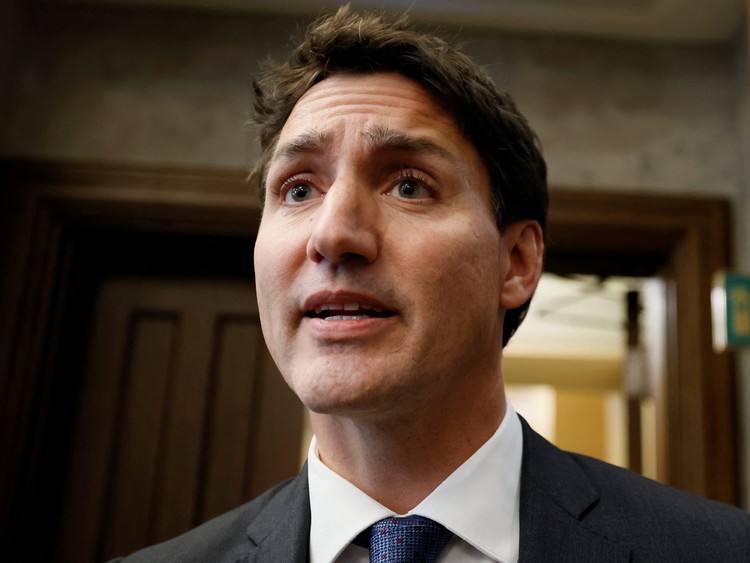
LILLEY: Trudeau trying to pre-judge Emergencies Act inquiry outcome as Commission gets underway — Toronto Sun
Even before Justice Paul Rouleau had a full day of public hearings under his belt, Justin Trudeau was publicly defending his invocation of the Emergencies Act. A normal prime minister, one who followed our laws, constitution and legal traditions, would have said he couldn’t comment while the...apple.news
Instead, for the second day in a row, Trudeau was pleading his case in the court of public opinion.
“We knew from the very beginning, that invoking the Emergencies Act is a big step that had never been done before,” Trudeau said in Hamilton. “But given these unprecedented illegal protests, we needed to take action. We took it in a way that was measured, that was responsible that was time limited.”
It’s not up to the Prime Minister to declare, as the inquiry into his use of the Emergencies Act begins, that his actions were measured, responsible and time limited. Were this a trial, Trudeau could have been found in contempt of court for such utterances. Instead, he’s just showing he has no shame.

LILLEY: Trudeau trying to pre-judge Emergencies Act inquiry outcome as Commission gets underway — Toronto Sun
Even before Justice Paul Rouleau had a full day of public hearings under his belt, Justin Trudeau was publicly defending his invocation of the Emergencies Act. A normal prime minister, one who followed our laws, constitution and legal traditions, would have said he couldn’t comment while the...apple.news
The purpose of this inquiry is supposed to be to look into the government’s actions and whether they are justified. That’s what the Emergencies Act requires, but the terms of reference Trudeau issued to Justice Rouleau back in April show he wants the judge to look into the behavior and financing of the protesters.
“Uncovering the truth is an important goal,” Justice Rouleau said in his opening statement.
Getting the truth out of any government is difficult — they all like to keep things hidden — but the Trudeau government is the antithesis of the open and transparent government he promised before he was elected. Justice Rouleau his team at the Commission will need to work hard to ensure the truth does come out and that “the circumstances that led to the declaration being issued” are examined as the law requires.
That means examining the government’s actions and their reasons for invoking the act in the first place.

LILLEY: Trudeau trying to pre-judge Emergencies Act inquiry outcome as Commission gets underway — Toronto Sun
Even before Justice Paul Rouleau had a full day of public hearings under his belt, Justin Trudeau was publicly defending his invocation of the Emergencies Act. A normal prime minister, one who followed our laws, constitution and legal traditions, would have said he couldn’t comment while the...apple.news
Justice Rouleau undertakes this job with a partisan cloud hanging over him, one that I hope he can disperse. Given his past as a key staffer to former Liberal prime minister John Turner, many people have suspicions.
His time working for Turner though is more than 30 years ago. His time as a low-level Liberal donor – just a few hundred dollars in the mid-90s – is also a long time ago but gives some pause for concern. Let’s hope that he proves his impartiality by pushing the government to get to the truth.
According to the law, a Public Order Emergency, which is what the Trudeau government invoked, is “an emergency that arises from threats to the security of Canada and that is so serious as to be a national emergency.” I’ve never felt the convoy protests in Ottawa met that threshold.
Remember that the blockade of the Ambassador Bridge in Windsor had been cleared before the Trudeau government even met to discuss the Emergencies Act. The much smaller blockade in Coutts was being dealt with by the RCMP in Alberta.
In Ottawa, the protests had lingered for weeks because there was a lack of leadership at the municipal level. Once Ottawa Police Chief Peter Sloly “resigned” and someone new was put in charge, the streets were cleared.
There was no reason to suspend civil liberties, give police extraordinary powers that they didn’t even use, or to freeze the bank accounts of protest participants. Regardless of your view of the protests, and I told them to go home after the first weekend, invoking this act is something that should only be done under extreme circumstances.
The Trudeau government failed to adequately defend their actions in Parliament, let’s see if they can when the truth comes out at the Commission.
Public Inquiries into Emergencies Act begin September 19
- Thread starter The_Foxer
- Start date
You are using an out of date browser. It may not display this or other websites correctly.
You should upgrade or use an alternative browser.
You should upgrade or use an alternative browser.
EDITORIAL: Time for the truth about invoking Emergencies Act — Toronto Sun
Prime Minister Justin Trudeau has repeatedly failed to honour his 2015 election promise to run an honest, open and transparent government and that should concern Canadians as the public inquiry into his unprecedented decision to invoke the Emergencies Act in February gets underway. Trudeau was...
It will now be the job of Justice Paul Rouleau, head of the inquiry which is mandatory under the Emergencies Act, to determine the validity of Trudeau’s claim, because Canadians have the right to know the truth.
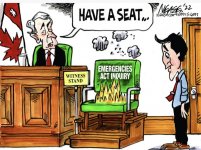
Commissioner Paul Rouleau will need to keep a tight grip on proceedings to prevent them pinballing all over the place, as discredited police officers and politicians seek to rehabilitate their reputations, and disgruntled provincial governments express umbrage that they were not consulted.
But Lakehead University law professor Ryan Alford made an opening statement that gets to the nub of the inquiry: the federal government has to prove it met the legal standard for using the emergency provision of last resort.
Alford said that in its opening statement the government of Canada’s counsel, Robert MacKinnon, had said Ottawa had a “reasonable basis” for declaring a public order emergency.
“Unfortunately, a reasonable basis is not a legal, let alone constitutional, basis for using unprecedented and destructive emergency powers,” he said.
In its order in council, the government said the blockades in Ottawa were “being carried out in conjunction with activities that are directed toward or in support of the threat or use acts of serious violence.”
But, as Alford pointed out, the correct legal standard for threats to the security of Canada requires those acts to be direct, “not tied to serious acts of violence in some fashion, not in conjunction with or association in some fashion.”
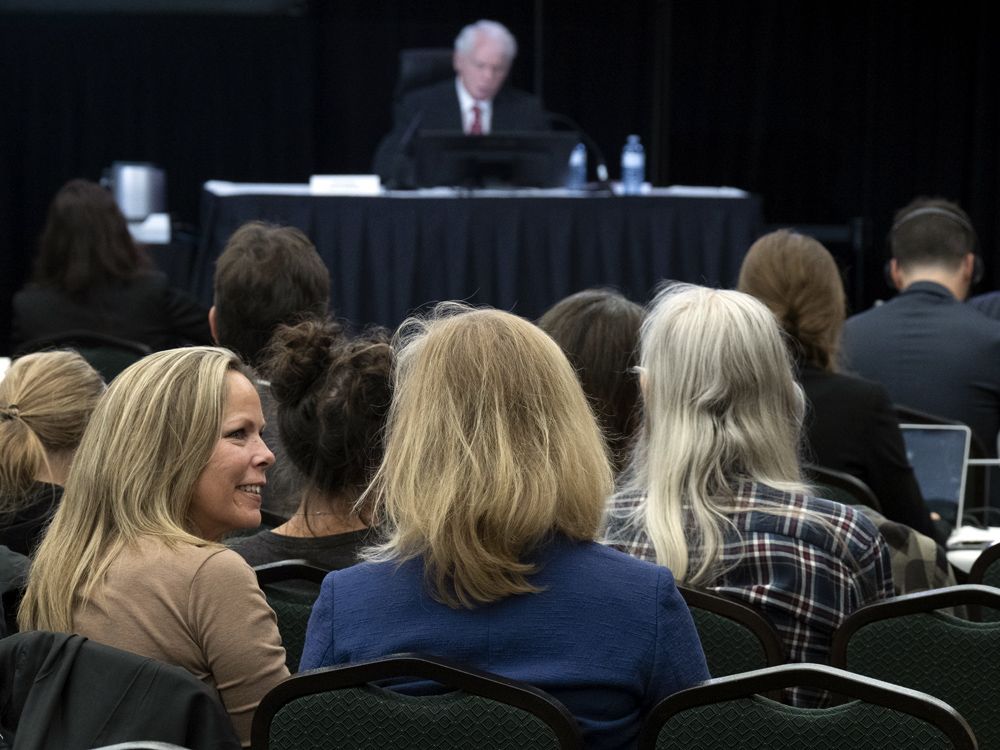
John Ivison: Trudeau has high bar to meet to justify use of Emergencies Act's extraordinary powers
Trudeau and his ministers must make the case that the nut they had to crack was much tougher than a rowdy occupation by some unsophisticated troublemakers
The sweeping powers triggered by Prime Minister Justin Trudeau to quell February’s convoy protests were not needed, the Ontario Provincial Police said at the first day of hearings in a public inquiry to determine whether the federal government contravened the law in its use of the powers.
The provincial police force’s brief opening statement on Thursday focused on the legal requirements the government had to meet before it could invoke the federal Emergencies Act.
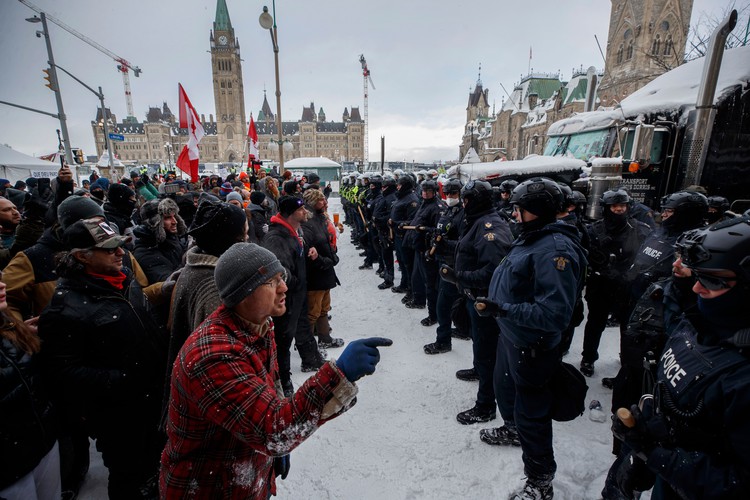
 apple.news
apple.news
OPP lawyer Christopher Diana said Thursday in Ottawa that while the emergencies legislation provided useful tools, “there was sufficient legal authority in their absence to deal with the protest activities that took place over this period of time.”
The federal government, which initially said invoking the act was done on the advice of law enforcement, later clarified that they had asked for the powers in the act, not for the law directly. (???)
OPP Commissioner Thomas Carrique told a parliamentary committee in March that the tools available through the act “made our operation very effective, and in the absence of having those tools, we could have not have been as effective.”
The government used the temporary powers granted to it by the Emergencies Act to crack down on the demonstrators, including giving police the ability to arrest protesters within specific prohibited areas (in Ottawa) and financial institutions the power to freeze protesters’ accounts
The CCLA alleges that the Trudeau government has not met the conditions needed to invoke the Emergencies Act and that restricting protests and freezing bank accounts unreasonably infringes upon Canadians’ charter-protected rights.
In order to declare a “public order emergency” under the act, the government needs to clearly show that: there are “threats to the security of Canada” and that it “is so serious as to be a national emergency.”
The definition of “threats to the security of Canada” is spelled out in the Canadian Security Intelligence Service Act, which lists four possible kinds of threats: i) espionage or sabotage; ii) clandestine or deceptive foreign-influenced activities that threaten Canada’s interests; iii) activities that use, or threaten, serious violence for the purpose of achieving a political or ideological objective; and iv) activities that threaten the constitutionally established system of government through covert, unlawful acts or by violent overthrow.
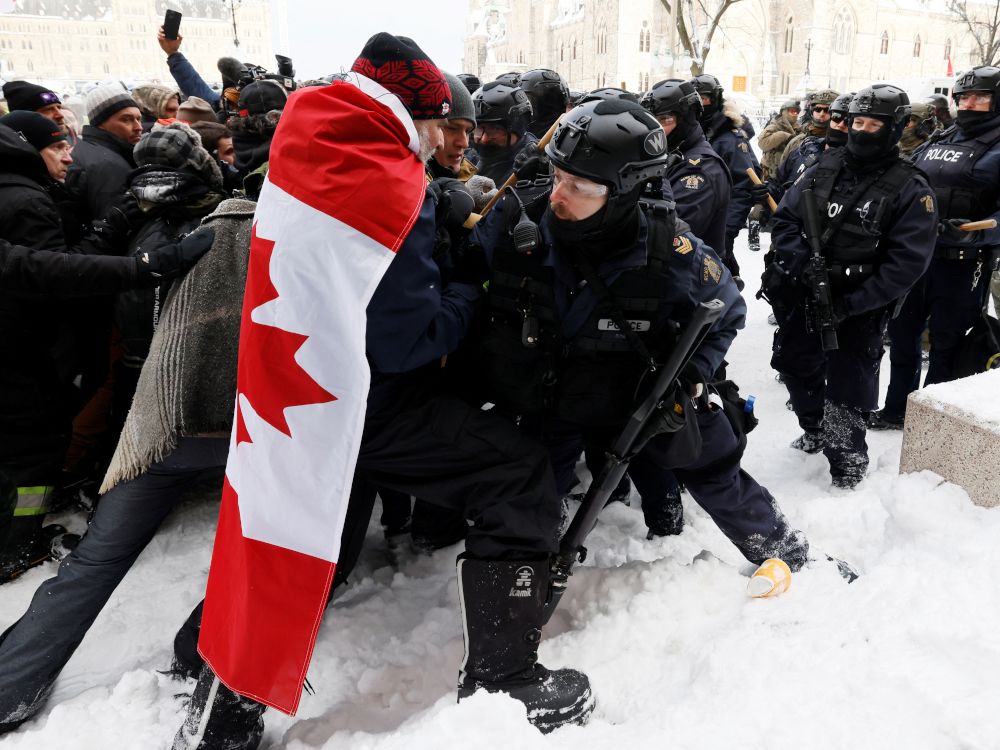
 nationalpost.com
nationalpost.com
Protests are inherently chaotic and cannot be held to an impossible standard of conduct upon threat of invoking emergency legislation. Were it otherwise, there would be a chilling effect on Canada’s democracy.
As the lawsuit notes, the Emergencies Act “was intended to address situations of war, invasion and other national emergencies that are so exigent and threatening that they cannot be dealt with under existing laws or through typical democratic processes.”
Additionally, the CCLA argues that Trudeau’s order that Canadian financial institutions freeze or suspend bank accounts held by “designated persons” also violates charter-protected rights. When financial institutions are forced to disclose the existence of property, as well as information relating to said property, to CSIS and the RCMP without judicial authorization or reasonable or probable grounds, that violates Canadians’ right to be secure against unreasonable search or seizure.
Some of Trudeau’s supporters have tried to gaslight Canadians into thinking that invoking the Emergencies Act will have little impact on the integrity of Canadian civil liberties. Vehement opposition from the CCLA, one of Canada’s most prominent and respected rights organizations, helps dispel these attempts to normalize the flippant use of extraordinary powers.
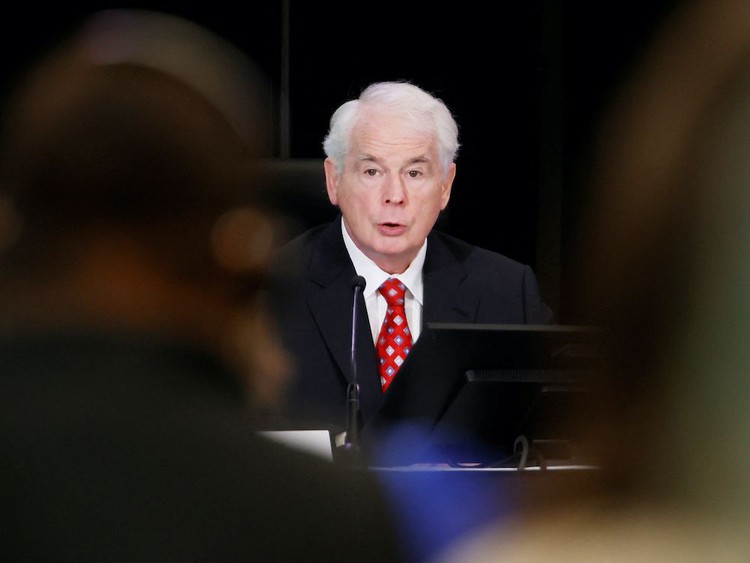
 apple.news
The act is a successor to the discredited War Measures Act, which was abused during the FLQ Crisis in Quebec (by a different Trudeau). The Emergencies Act — especially the last resort clause — was drafted to ensure that the act could never again be used by a federal government against its political opponents.
apple.news
The act is a successor to the discredited War Measures Act, which was abused during the FLQ Crisis in Quebec (by a different Trudeau). The Emergencies Act — especially the last resort clause — was drafted to ensure that the act could never again be used by a federal government against its political opponents.
The provincial police force’s brief opening statement on Thursday focused on the legal requirements the government had to meet before it could invoke the federal Emergencies Act.
Emergencies Act wasn’t needed to quell convoy protests, Ontario police force says — The Globe and Mail
Police had ‘sufficient legal authority’ to deal with the protests, OPP’s lawyer says on inquiry’s first day
OPP lawyer Christopher Diana said Thursday in Ottawa that while the emergencies legislation provided useful tools, “there was sufficient legal authority in their absence to deal with the protest activities that took place over this period of time.”
The federal government, which initially said invoking the act was done on the advice of law enforcement, later clarified that they had asked for the powers in the act, not for the law directly. (???)
OPP Commissioner Thomas Carrique told a parliamentary committee in March that the tools available through the act “made our operation very effective, and in the absence of having those tools, we could have not have been as effective.”
The government used the temporary powers granted to it by the Emergencies Act to crack down on the demonstrators, including giving police the ability to arrest protesters within specific prohibited areas (in Ottawa) and financial institutions the power to freeze protesters’ accounts
without a court order.The CCLA alleges that the Trudeau government has not met the conditions needed to invoke the Emergencies Act and that restricting protests and freezing bank accounts unreasonably infringes upon Canadians’ charter-protected rights.
In order to declare a “public order emergency” under the act, the government needs to clearly show that: there are “threats to the security of Canada” and that it “is so serious as to be a national emergency.”
The definition of “threats to the security of Canada” is spelled out in the Canadian Security Intelligence Service Act, which lists four possible kinds of threats: i) espionage or sabotage; ii) clandestine or deceptive foreign-influenced activities that threaten Canada’s interests; iii) activities that use, or threaten, serious violence for the purpose of achieving a political or ideological objective; and iv) activities that threaten the constitutionally established system of government through covert, unlawful acts or by violent overthrow.

Adam Zivo: How Trudeau's use of the Emergencies Act violates the rights of Canadians
On Friday, the Canadian Civil Liberties Association launched a lawsuit against the government, which shows why concerns about government overreach have teeth
Protests are inherently chaotic and cannot be held to an impossible standard of conduct upon threat of invoking emergency legislation. Were it otherwise, there would be a chilling effect on Canada’s democracy.
As the lawsuit notes, the Emergencies Act “was intended to address situations of war, invasion and other national emergencies that are so exigent and threatening that they cannot be dealt with under existing laws or through typical democratic processes.”
Additionally, the CCLA argues that Trudeau’s order that Canadian financial institutions freeze or suspend bank accounts held by “designated persons” also violates charter-protected rights. When financial institutions are forced to disclose the existence of property, as well as information relating to said property, to CSIS and the RCMP without judicial authorization or reasonable or probable grounds, that violates Canadians’ right to be secure against unreasonable search or seizure.
Some of Trudeau’s supporters have tried to gaslight Canadians into thinking that invoking the Emergencies Act will have little impact on the integrity of Canadian civil liberties. Vehement opposition from the CCLA, one of Canada’s most prominent and respected rights organizations, helps dispel these attempts to normalize the flippant use of extraordinary powers.
Opinion: The Emergencies Act was never meant to be used against political opponents — National Post
The public inquiry must soberly judge the Liberal government's use of emergency powers
Commissioner Paul Rouleau a liberal donor . Probably unbiased .Invoking the act — which former PM Jean Chretien did not do during 9/11 and Trudeau didn’t do during protests that shut down Canada’s rail lines — empowered the government to violate fundamental civil liberties of Canadians.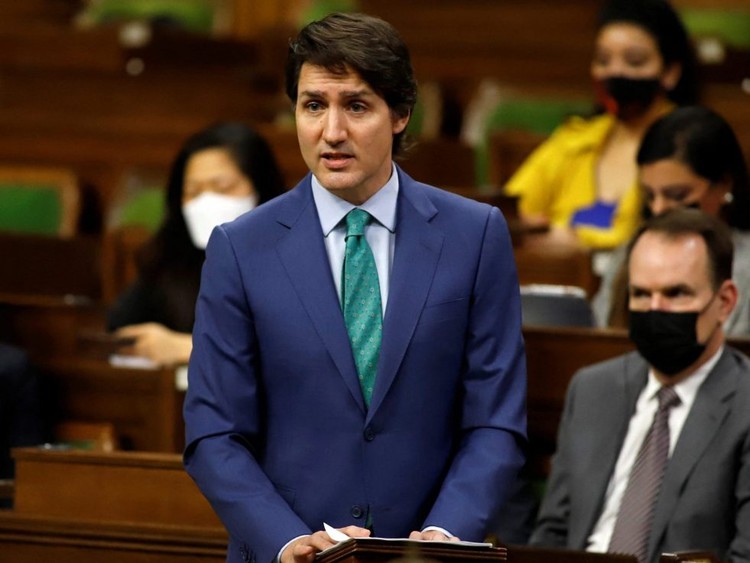
EDITORIAL: Time for the truth about invoking Emergencies Act — Toronto Sun
Prime Minister Justin Trudeau has repeatedly failed to honour his 2015 election promise to run an honest, open and transparent government and that should concern Canadians as the public inquiry into his unprecedented decision to invoke the Emergencies Act in February gets underway. Trudeau was...apple.news
It will now be the job of Justice Paul Rouleau, head of the inquiry which is mandatory under the Emergencies Act, to determine the validity of Trudeau’s claim, because Canadians have the right to know the truth.
View attachment 16029
Commissioner Paul Rouleau will need to keep a tight grip on proceedings to prevent them pinballing all over the place, as discredited police officers and politicians seek to rehabilitate their reputations, and disgruntled provincial governments express umbrage that they were not consulted.
But Lakehead University law professor Ryan Alford made an opening statement that gets to the nub of the inquiry: the federal government has to prove it met the legal standard for using the emergency provision of last resort.
Alford said that in its opening statement the government of Canada’s counsel, Robert MacKinnon, had said Ottawa had a “reasonable basis” for declaring a public order emergency.
“Unfortunately, a reasonable basis is not a legal, let alone constitutional, basis for using unprecedented and destructive emergency powers,” he said.
In its order in council, the government said the blockades in Ottawa were “being carried out in conjunction with activities that are directed toward or in support of the threat or use acts of serious violence.”
But, as Alford pointed out, the correct legal standard for threats to the security of Canada requires those acts to be direct, “not tied to serious acts of violence in some fashion, not in conjunction with or association in some fashion.”
The onus is on the government to prove that it believed there was a clear and present threat to national security from the truckers’ convoy that existing legislation could not contain. “The rule of law requires nothing less,” said Alford.
John Ivison: Trudeau has high bar to meet to justify use of Emergencies Act's extraordinary powers
Trudeau and his ministers must make the case that the nut they had to crack was much tougher than a rowdy occupation by some unsophisticated troublemakersnationalpost.com
Donor? He was PET's rent boi.Commissioner Paul Rouleau a liberal donor . Probably unbiased .
The Court of Public Opinion is the last place turdOWE will find backing.
In the 90’s I think I read so 25 or 30 years ago.Commissioner Paul Rouleau a liberal donor . Probably unbiased .
SO another potential father?Donor? He was PET's rent boi.
He was a big player in PET's inner circle jerk.In the 90’s I think I read so 25 or 30 years ago.
Paul Rouleau worked for the Liberal Party of Canada in the past. In 1983, he was part of John Turner’s leadership campaign to take over when Pierre Trudeau announced his retirement.[2][3][4] Rouleau then had a hand in helping pick Turner’s cabinet once he won leadership and is described as either his executive assistant or appointments secretary in various media reports from that era.[5][6]
Don't be so sure, still plenty of stupid FB/Twitter users out there.The Court of Public Opinion is the last place turdOWE will find backing.
Trudeau is trying to hijack the commission. He’s trying to flip it around — to put the truckers on trial. Trudeau actually wrote the rules for the commission. It’s an inside job.
This trucker commission has been instructed by Justin Trudeau not to scrutinize too closely Trudeau himself, but rather to put the truckers on trial and their 'misinformation.' As if 'misinformation' or as if the trucker leadership in some way would justify the suspension of our civil liberties. You know Trudeau doesn't really believe in the rule of law."
Unfortunately, the Rebel News & other independents are the only ones who have actually attended the Convoy but who have actually investigated and KNOW what happened at the Protest. The mainstream media simply "spew" the same nonsense as the government.
This trucker commission has been instructed by Justin Trudeau not to scrutinize too closely Trudeau himself, but rather to put the truckers on trial and their 'misinformation.' As if 'misinformation' or as if the trucker leadership in some way would justify the suspension of our civil liberties. You know Trudeau doesn't really believe in the rule of law."
Unfortunately, the Rebel News & other independents are the only ones who have actually attended the Convoy but who have actually investigated and KNOW what happened at the Protest. The mainstream media simply "spew" the same nonsense as the government.
Positively Trumpian of him.Trudeau is trying to hijack the commission. He’s trying to flip it around — to put the truckers on trial.

Inquiries on CPAC
When a commission or public inquiry is called to investigate an issue, count on CPAC to deliver gavel-to-gavel coverage.
As opposed to BLMs "mostly peaceful campfires"Wow.... "lawless campfires".
You realize, I hope, that the PM invoking the Emergencies Act because somebody was rude is pretty much a "Canadian joke," right?
Double standard is mostly a Liberal/ Democrat thing...........As opposed to BLMs "mostly peaceful campfires"